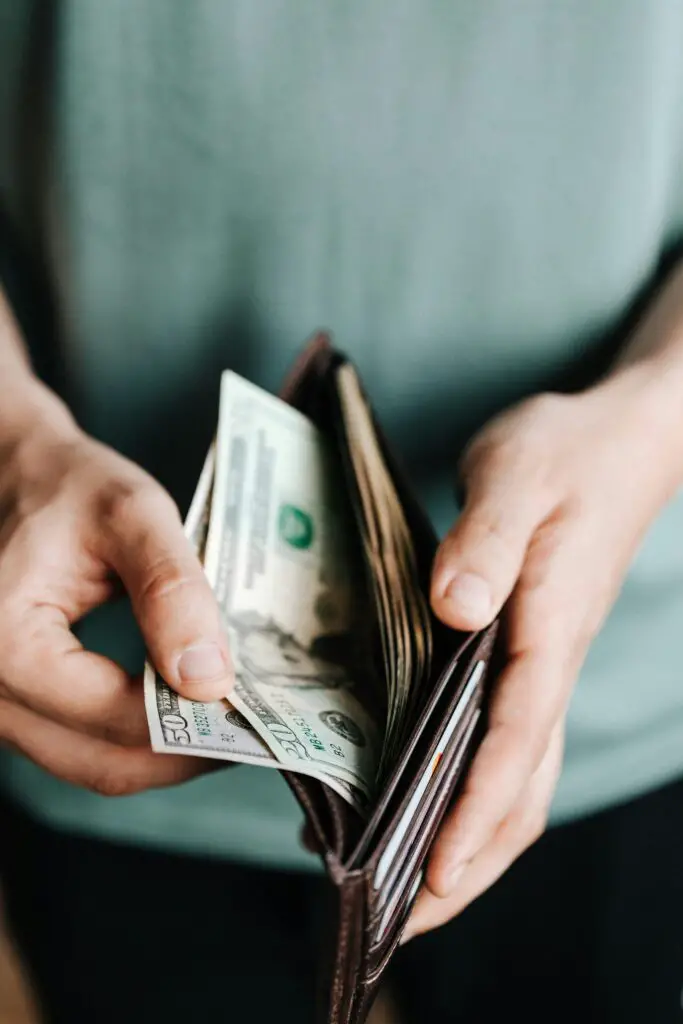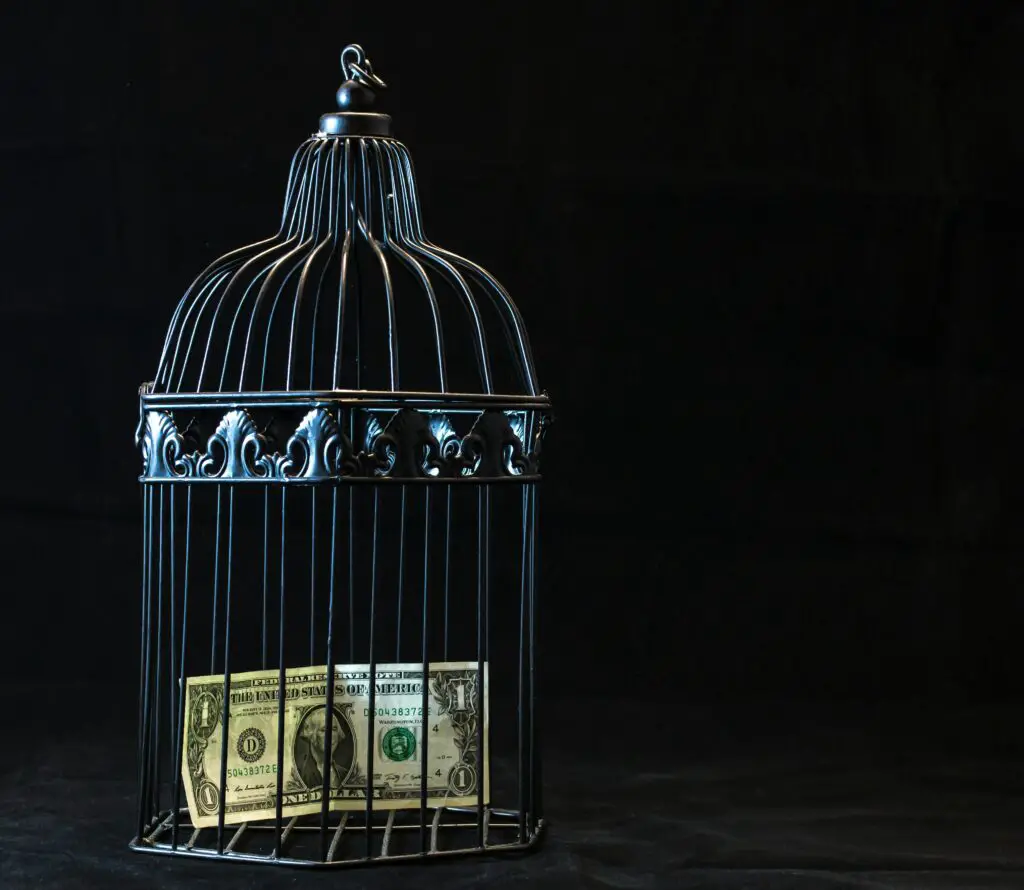When you look at how narcissists manage their finances, you start to see a clear pattern: their money habits often serve their needs and can really throw a wrench in the lives of others. Narcissists have a knack for mixing wealth and power, which makes their financial behaviors particularly impactful—not just for them but for everyone in their circle. As we dig into the “Money Habits Narcissists Share,” it becomes apparent that there are five specific practices that stand out. These habits are not just common; they’re predictably toxic.
Whether it’s using others’ money as if it were their own, or manipulating financial situations to their advantage, each habit underscores a fundamental self-centeredness that is typical of narcissistic behavior. This isn’t just about spending money extravagantly or making risky investments—it’s about a systematic approach to finances that prioritizes their desires and undermines others’ financial security.

Table of Contents
Narcissism and Money
Narcissism, marked by an inflated sense of self-importance and an unquenchable thirst for attention, shapes how someone might handle their finances in very telling ways. When you mix a narcissistic personality with financial decisions, you often get a combination that tends to prioritize personal desires and needs above all else. This can manifest in various money habits that not only seek to benefit the narcissist but also tend to disregard the financial well-being of others around them. Whether it’s spending extravagantly to impress others or manipulating financial situations for personal gain, the impact is significant.
These behaviors are driven by the narcissist’s view that their financial choices are more crucial than the consequences those choices might have on others, setting up a dynamic where money becomes a tool for control and self-aggrandizement.
Money Habit Number 1: Exploitative Use of Resources
One of the most apparent money habits narcissists share is the exploitative use of others’ financial resources. This might manifest as borrowing money with no intention of returning it or manipulating others to shoulder financial burdens. An anecdote worth sharing is about a friend who dated someone who, under the guise of handling their finances, gradually shifted all his bills onto her without her initial realization. This not only strained her financial health but also left her feeling used once the relationship ended.
Money Habit Number 2: Overspending to Impress
Narcissists have a unique approach to using money as a tool to impress and sway others. This involves splurging on big-ticket items—think extravagant gifts, luxury vacations, or the latest sports cars—not just for the joy of it, but to cultivate an image of wealth and success. This particular money habit isn’t about personal enjoyment of luxury but rather about crafting an aura that draws admiration and even jealousy from others. For example, in the business world, it’s common to see some entrepreneurs who sport the most expensive suits and drive the flashiest cars.
They aren’t doing this merely for their own pleasure; it’s a calculated move to attract and impress potential investors and partners. The goal is to project success and solidify their status at the top, using their spending habits as both a shield and a beacon.
Money Habit Number 3: Financial Control Over Others
A particularly toxic money habit among narcissists is their use of financial control to dominate others. This manifests in personal relationships as setting stringent allowances and in business dealings as using monetary leverage to manipulate decisions. Such financial dominance is not merely about control for its own sake but aims to cement the narcissist’s role as indispensable and unchallengeable. They might insist on managing all household finances or dictate major business investments, effectively making others dependent on their decisions. This form of control ensures that the narcissist remains at the center of financial matters, illustrating one of the most damaging money habits that can significantly impact both personal and professional relationships.
Money Habit Number 4: Lack of Financial Empathy
One of the more troubling money habits of narcissists is their stark lack of financial empathy. This means they often don’t consider or care about how their financial actions affect others. Whether it’s breaking financial promises, backing out of commitments at the last minute, or twisting financial agreements to benefit themselves, narcissists routinely disregard the negative impact of their decisions on others.
This behavior goes beyond mere insensitivity; it’s a strategic approach to finance where every decision is aimed at benefiting themselves, regardless of the cost to anyone else. For instance, a narcissist might agree to a business deal, only to pull out or change the terms once they realize there’s a better deal for them elsewhere, leaving their partners in difficult positions. This disregard is a definitive sign of their problematic financial empathy, marking it as a core characteristic of their money habits.
Money Habit Number 5: Risky Financial Gambits
Narcissists frequently exhibit a money habit of gravitating towards high-risk financial gambits. They’re the type to roll the dice on big bets, whether it’s gambling with substantial amounts of money, diving into questionable investment schemes, or making impulsive financial choices without considering the fallout. For them, the excitement of potentially striking it big often overshadows the substantial risks involved.
This thrill-seeking approach can lead to severe consequences, affecting not only the narcissist but also everyone connected to their financial endeavors. Such risky behavior reflects a deeper pattern in their financial strategy—always chasing high rewards, regardless of the potential for significant losses. It’s a stark reminder of how their money habits can create instability and uncertainty for everyone around them.

Conclusion
Understanding and spotting these toxic money habits in people is crucial for mitigating their adverse effects, especially in personal and professional relationships. Recognizing these financial behaviors allows you to take proactive steps to protect your financial interests and establish healthier boundaries. It’s important to be aware of how these habits can impact you and to know how to respond effectively.
For instance, if you notice someone consistently exhibits financial control or a lack of empathy in money matters, online therapy can be a useful resource to help you navigate these interactions and reconsider your financial engagement with them. Setting clear boundaries and being cautious in financial dealings are vital strategies to secure your finances and maintain healthy relationships. Learning to identify and respond to these money habits is essential for preserving your financial health and personal well-being.
FAQ
How do narcissists behave with money?
Narcissists’ money habits often revolve around using financial resources to manipulate, impress, and exert control over others. Their approach to money is highly self-centered and may involve risky or exploitative practices that serve their own interests. They may use generous spending to dominate social circles or create financial dependencies to control others, ensuring that their own needs are always prioritized over the well-being of those around them.
How are covert narcissists with money?
Covert narcissists exhibit money habits that are less overt but no less manipulative. They might not openly flaunt wealth, but they manipulate financial scenarios subtly. This can include playing the victim to gain financial sympathy or quietly diverting funds for their own use. Their financial strategies are often designed to accumulate and maintain control without drawing attention, allowing them to manipulate others behind a facade of modesty or victimhood.
What happens when a narcissist runs out of money?
When a narcissist faces financial troubles, their money habits quickly adapt to the new circumstances. They often seek out new targets from whom they can extract financial resources or dramatically shift their behavior—perhaps portraying themselves as martyrs to garner sympathy and support. This adaptive behavior helps them navigate financial crises by exploiting the generosity or trust of others, ensuring that they rebound from financial setbacks at the expense of those around them.
Does power lead to narcissism?
While power doesn’t directly lead to narcissism, it can certainly amplify pre-existing narcissistic traits. For a narcissist, power enhances their money habits, providing greater means and opportunities to manipulate financial outcomes in their favor. The access to power often emboldens narcissists, allowing them to deploy their manipulative financial strategies more broadly and with greater impact, reinforcing their need to dominate and control their environments.
